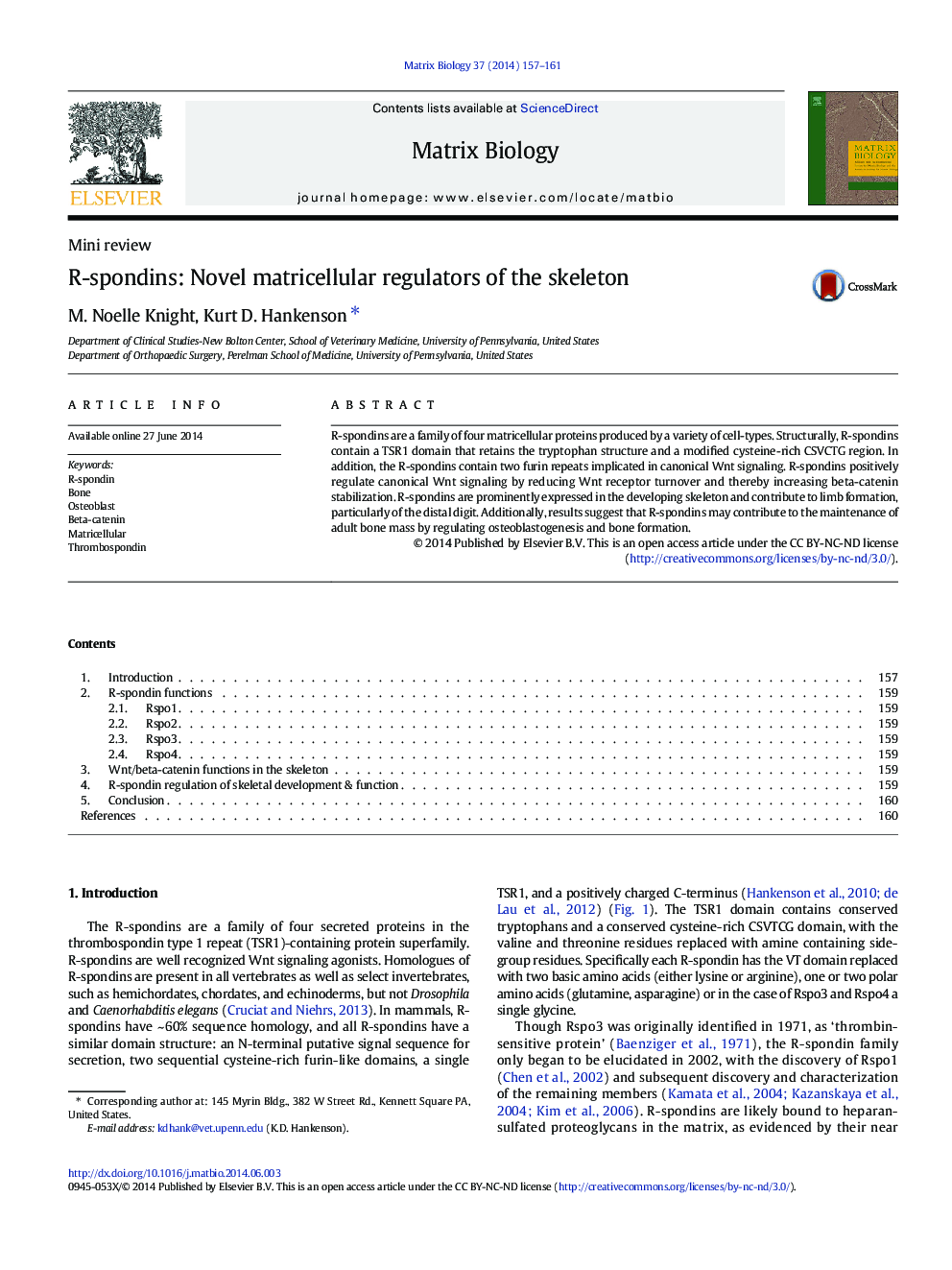| Article ID | Journal | Published Year | Pages | File Type |
|---|---|---|---|---|
| 2144792 | Matrix Biology | 2014 | 5 Pages |
•R-spondins are a unique family of matricellular proteins.•R-spondins contain a single TSR1 domain and two furin repeats.•R-spondins regulate canonical Wnt-signaling.•R-spondins stabilize Wnt receptors by inhibiting receptor turnover.•R-spondins play roles in tissue morphogenesis and particularly regulate skeletal development and bone formation.
R-spondins are a family of four matricellular proteins produced by a variety of cell-types. Structurally, R-spondins contain a TSR1 domain that retains the tryptophan structure and a modified cysteine-rich CSVCTG region. In addition, the R-spondins contain two furin repeats implicated in canonical Wnt signaling. R-spondins positively regulate canonical Wnt signaling by reducing Wnt receptor turnover and thereby increasing beta-catenin stabilization. R-spondins are prominently expressed in the developing skeleton and contribute to limb formation, particularly of the distal digit. Additionally, results suggest that R-spondins may contribute to the maintenance of adult bone mass by regulating osteoblastogenesis and bone formation.
